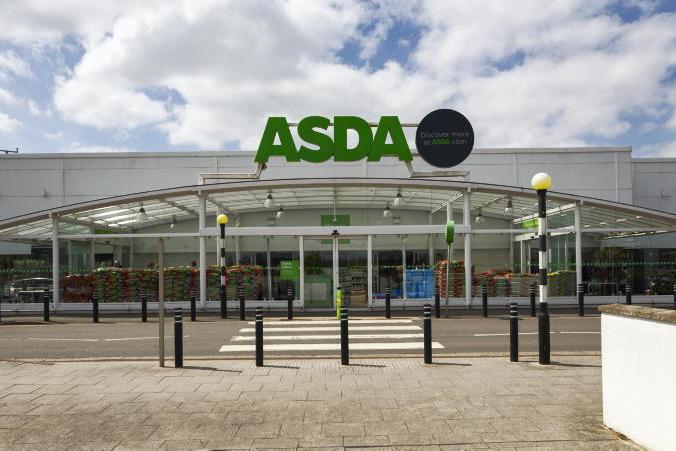There’s just a month to go until the UK leaves the EU on 31 October – with or without a deal. While the political situation in London has caused enormous uncertainty for Irish businesses, it’s important to realise there are simple steps you can take to prepare your business for Brexit.
Even this late in the day, Irish Government agencies are appealing for companies with any exposure to the UK to contact them and help mitigate the expected disruption as much as possible.
For Irish agri-food companies, Brexit poses acute problems as veterinary controls and sanitary and phytosanitary (SPS) checks will be required on a huge amount of goods and raw materials moving east-west between the UK and Ireland.
Whatever happens between now and the end of October, the reality is that the current arrangement between Ireland and the UK is going to change. Businesses exporting or importing to/from the UK market will need to be ready for these changes.
Most large companies have already taken steps to prepare for these changes and be ready for Brexit as much as possible. However, the Government is aware that many small to medium sized enterprises (SMEs) in the agri-food sector have not made any preparations for Brexit to date.
This week, the Irish Farmers Journal sat down with officials from the Department of Agriculture to go through some simple steps that SME agri-food companies can take to prepare for Brexit without any cost.
1. Make contact with DAFM
First and foremost, make contact with the Department of Agriculture. If you’re an agri-food company exporting or importing goods to/from customers in the UK then you need to make contact with the Department immediately, if you haven’t already done so. In order to continue importing/exporting to the UK market after 31 October, your company must be registered with the Department.
2. Examine your supply chain
The second most important thing agri-food companies can do is to thoroughly examine their supply chain and record where every raw material, ingredient, byproduct and component used across the business is sourced from. This way you can better assess your full exposure to UK-based suppliers/customers.
3. Register for an EORI number
As the UK will become a third country post-Brexit, Irish companies dealing with suppliers/customers in the UK market will need to register with Revenue for an Economic Operators Registration and Identification (EORI) number.
4. Imports – TRACES
If your company imports animals, products of animal origin, including fish or fishery products, and animal feed, including hay or straw, it is critical you contact the Department immediately and register your business on TRACES. TRACES is the EU’s online system for facilitating checks on the import of animals, semen and embryos, food, and animal feed. If your company is not registered with TRACES, goods or raw materials being imported cannot be processed at port.
5. Imports – veterinary documentation
After 31 October, if your company is importing animals, products of animal origin or animal byproducts such as eggs, dairy or meat, a crucial document you will need for every product is a veterinary health cert. This cert can only be issued by the competent authority in the UK. Without it, goods of animal origin cannot be granted entry to Ireland.
6. Imports – notify on time
After 31 October, companies importing animals, products of animal origin, fish or fishery products, plants, vegetables or any products of plant origin from the UK will need to notify DAFM at least 24 hours in advance of arrival at port in Dublin or Rosslare.
7. Pallets
Yes pallets. Companies exporting or importing goods to/from the UK after 31 October must ensure they and their suppliers are using ISPM 15-compliant wood pallets. ISPM 15 is an international phytosanitary measure developed to prevent the spread of diseases and insects that could negatively affect plants or ecosystems.
8. Exports – UK certification requirements
The UK government has stated that it will continue to recognise the current certification standards on some EU goods immediately after 31 October. However, this is subject to change and companies exporting to the UK may require veterinary or SPS certificates in the future. These certificates will be provided by DAFM so registering your business with DAFM is crucial.
9. Using the UK landbridge
If companies are exporting or importing goods to/from continental Europe via the UK landbridge they will need to use Revenue’s customs transit procedures to move goods through the UK after 31 October. Again, if a company is moving an animal or product of animal origin through the UK it will need to pre-notify authorities via the TRACES system.
10. Supports
For many SME businesses in the agri-food sector money is tight. To date, many companies have not taken steps to prepare for Brexit because they simply do not have the money. However, most of the steps listed above are free of charge. On top of this, many SME companies in the agri-food sector will be eligible to apply for Government supports such as the Brexit loan scheme, the future growth loan scheme as well as additional Brexit supports from Bord Bia.
If you do anything to prepare for Brexit make contact with the Department
Many SMEs may feel daunted by all the paperwork and technical data required to import/export to the UK after 31 October. However, companies can outsource a lot of this work to a specialised customs agent that will know what paperwork, certificates or customs procedures are appropriate for your business.
At the same time, Skillnet Ireland can provide training to directors or employees on how to navigate customs procedures and ensure all goods can transit through borders.
If companies reading this page do anything in the coming weeks they should at least make contact with the Department and let them know their situation.
The second most important thing companies can do is to thoroughly examine their supply chain.
Prepare for Brexit events
On Friday this week and Monday next week, the Department of Agriculture, Food and the Marine will host two free seminars on Brexit preparation for Irish agri-food businesses in Wexford and Cork.
The aim of these seminars is to provide businesses with simple, practical steps to prepare for Brexit. The first prepare for Brexit event will take place at 9.30am on Friday 27 September in Johnstown Castle Estate, Co Wexford, while the second event will take place at 9.00am on Monday 30 September in the Radisson Blu Hotel in Little Island, Co Cork.
Companies can register to attend for free at www.dfa.ie/brexit/events. To contact DAFM directly, call 076 106 4443 or email Brexitcall@agriculture.gov.ie









SHARING OPTIONS